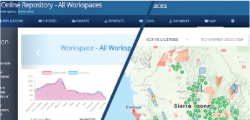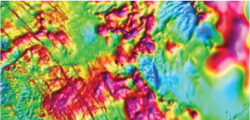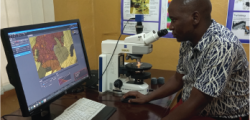Management Structure
The NMA is headed by a Board of Directors, which is the governing body of the Agency and is responsible for overseeing key operational activities, including: approving operational budgets for the NMA, establishing strategic direction, ensuring organisational effectiveness, setting standards and assessing performance, approving operational policies and implementing and overseeing effective human resource management.
The Agency has a fully functioning organizational structure at its National Headquarters at New England Ville in Freetown, and expanding regional offices in Kenema, Bo, Makeni, Kabala, Lungi and Kono. This structure outlines how roles, responsibilities and activities are coordinated to achieve the overall vision and mandate of the Agency.
In 2013 the NMA started operations with the Office of the Director General (ODG) and four Directorates – Directorate of Geological Surveys (DGS); Directorate of Mines (DoM); Directorate of Precious Minerals Trading (DPMT) and the Directorate of Finance and Administration (DFA). The Directorate of Communication and Community Affairs (DCCA) and the Directorate of Technology and Information Management (DTIM) were established in 2014 and 2020, respectively. Below is the executive management team of the Agency.
Senior Executive Team
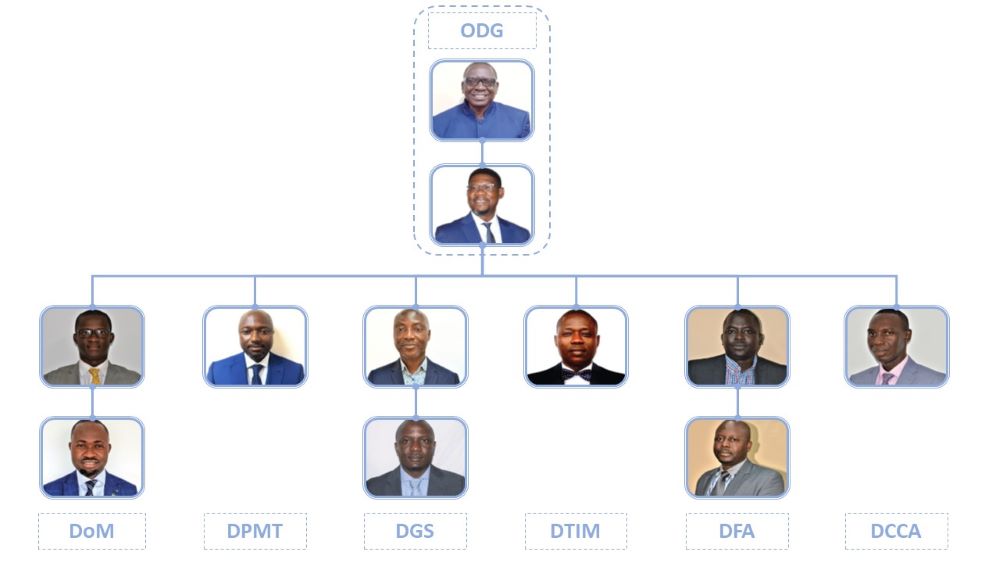
Directorates of the Agency
- ODG
- DOM
- DGS
- PMT
- DFA
- DCCA
- DTIM
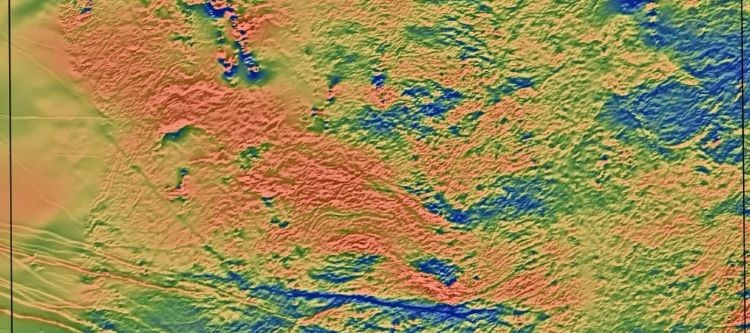
The Office of the Director General (ODG) manages the Agency and has overall responsibility for the formulation of coherent policies and oversight of activities to ensure compliance with strategic priorities in the NMA Strategic Plans. The ODG develops policies to promote inward and national investment in the minerals sector, including liaison with potential investors and with companies already active in exploration or mining in support of the GoSL’s national development agendas.
The Director General, assisted by the Deputy Director General, leads the Agency to ensure the realization of the vision, mission and values of the NMA, and is responsible for the day to day operation of the Agency. The Director General reports to the NMA Board of Directors on all key matters relating to the operations of the Agency, and advises on policy to the Ministry of Mines and Mineral Resources and other relevant Government of Sierra Leone bodies.
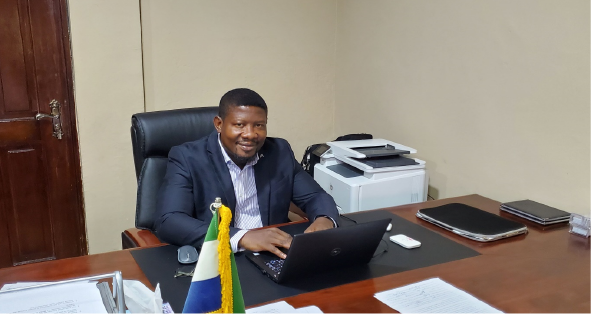
The Office of the Director General comprises:
- Human Resource Unit: Liaises with the NMA Board and the Director General to formulate strategic human resource policies that are in alignment with NMA’s Strategic Plans. It also provides effective leadership for a robust Human Resource Unit whose responsibility is to recruit, train, develop and retain the human capital in the right quality and quantity to drive the Strategic Plans.
- Compliance and Internal Audit Unit: is an independent and objective entity established to ensure compliance with internal policies and procedures, as well as relevant national legislations. It ensure that the Agency follows proper procedures, and functions as efficiently and transparently as possible.. The Unit helps the NMA accomplish its objectives by bringing a systematic and disciplined approach to assess, evaluate and improve the effectiveness of risk management, control and governance processes across the Agency as enshrined in Acts.
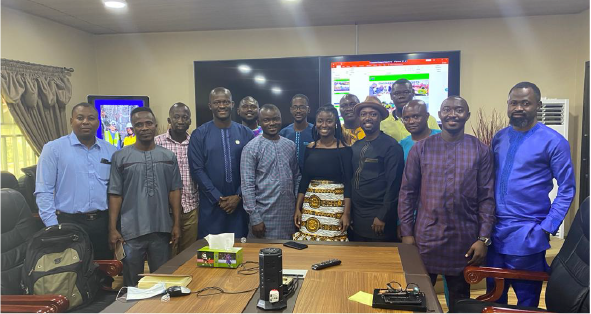
The Directorate of Mines (DoM) DoM is responsible for all activities associated with the administration of mineral rights and monitoring of mining operations to ensure that mining is conducted in a responsible and sustainable manner, and in compliance with the prevailing mining and other laws and pertinent regulations.
The Directorate is made up of the following Units:
- Mining Cadastre and Records Management Unit: This Unit is responsible for the management of the MCAS including the processing of mineral rights applications; the issuance and administration of licences and permits; the maintenance of cadastral records, registers and maps; and the receipt and safe-keeping of reports; all in an objective, non-discretionary and transparent manner in accordance with the laws of Sierra Leone
- Mining Compliance, Technical Assessment and Economic & Financial Modelling Unit: This Unit is responsible for developing systems for the technical assessment of applications for mineral rights; monitoring mining activities to ensure full compliance with existing laws; collecting, processing and analysing data on the economics of the mining sector; and monitoring international commodity markets information as they relate to mining companies in the country. The Unit also conducts pre-shipment inspection (draft surveys) of all bulk mineral commodities thereby providing useful information for the computation of royalty and other taxes in an accurate and timely manner.
- Environment, Health & Safety Unit: This Unit is charged with the responsibility of fully implementing the environment provisions of the MMA 2009 and the MMOR 2013, including other relevant laws in ensuring that mineral right holders are fully compliant with environmental, health and safety requirements in line with international best practices. It also ensures that appropriate environmental health and safety monitoring plans are developed, implemented, measured, reviewed and reported on as prescribed. The Unit collaborates with other MDAs to formulate and implement environment, health and safety strategies.
- NMA Regional Offices: The Directorate of Mines supervises the NMA Regional Offices in Bo, Makeni, Kenema and Kono. Each Regional office is headed by a Regional Manager who supervises regional office staff including technical and administrative officers. The Regional Offices are directly responsible for managing the day-to-day affairs of the Agency’s operations in the various regions. Their operations relate to the processing and issuance of Artisanal Mineral Rights in accordance with the MMA 2009 and other regulations. The NMA Regional Offices also liaise with district and chiefdom administrations on matters relating to mining and conduct regular compliance inspections of all artisanal and Industrial mineral right holders within the respective regions to ensure maximum compliance. The office also provides relevant mining information to stakeholders and advise Artisanal Miners on matters relating to laws and regulations.
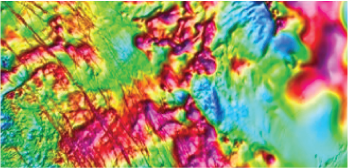
The functions of the Directorate of Geological Survey (DGS) is to give advice to the Director Genral on all geological matters; undertaking of geological mapping of Sierra Leone; undertaking of reconnaissance and exploration operations with a view to locating mineral deposits; compilation, publication and dissemination of data and information concerning the geology and mineral resources of Sierra Leone; and the maintenance of a laboratory, library and records facility. It is also responsible for facilitating and monitoring exploration and managing national geological information.
The structure of the Directorate is as follows:
- Field Mapping Unit: is responsible for planning and implementing field mapping activities.
- Exploration Compliance Unit: is responsible for enforcing compliance on all exploration license holders through field and desktop monitoring.
- Technical Services and Laboratory Unit: is responsible for analysing samples generated from field activities of the Directorate; verifying and sealing exploration and mining companies’ samples before they are exported to overseas laboratories for analysis; and sample preparation and X-Ray Florescence analysis services.
- Geophysics Unit: is responsible for planning and implementing geophysical survey programs.
- Geochemistry Unit: is responsible for planning and implementing geochemical survey programs.
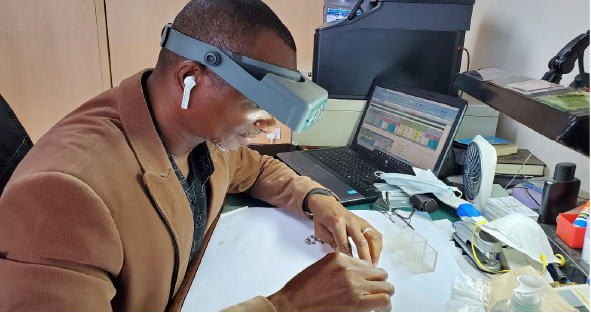
The Directorate of Precious Minerals Trading (DPMT) undertakes the valuing of all diamonds and assaying of gold and oversees the trade in precious minerals to determine government royalties and other relevant statutory taxes. The DPMT is situated within the Bank of Sierra Leone because it provides a more secured environment. the With the coming of the NMA Act 2012, the Government Gold and Diamond Office (GGDO), ceased to exist and became the DPMT under the NMA. According to the NMA Act 2012, all liabilities and assets of the GGDO were taken over by the NMA.
The DPMT has the following Units:
- Gold Assaying Unit: This Unit assays gold to determine the purity and quality which gives an approximate indication of value upon which Government collects royalties and taxes.
- Diamond Valuation Unit: This Unit is responsible for valuation of all diamonds to determine export duties. This Unit is also the Focal Point for the Kimberley Process Certification Scheme (KPCS) and ensures that all diamond exports are done in accordance with the KPCS requirements.
- Trading and Auditing Unit: This Unit ensures that licenses and financial records are in order and also liaise with the Mines Compliance Officers at the Freetown International Airport, Lungi on the movement of precious metals and precious/semi-precious stones. It also establishes chain of custody and undertakes traceability activities, including secured and international–standard processes to control precious minerals movement, certification, import, export and fraud related issues.

The Directorate of Finance and Administration (DFA) is responsible for the overall financial and management accounting, and the co-ordination and planning of the operations of the Agency to achieve its goals and objectives as defined in the NMA’s Strategic Plans.
The DFA has the following Units:
- Accounts Unit: ensures the effective, efficient and transparent management of all NMA’s financial resources, including being in full compliance with the Government Budget Accountability Act, 2005; the Public Finance Management Act, 2020; the Financial Management and Control Act, 2017; the NMA’s Financial Manual; and the directives given by the Ministry of Finance. Provides financial and accounting advice to all Directorates to ensure finances are managed according to the policies, procedures designed by the Agency. This Unit also ensures effective financial management information systems for internal controls and external audits.
- Procurement Unit: is responsible for acquisition of goods, works and services of the Agency in accordance with the National Public Procurement Act 2016 and its related National Procurement Regulation 2020.
- Logistics and Asset Management Unit: is responsible for the effective and efficient delivery of support services including overall logistics and fleets, and asset management within the Agency.
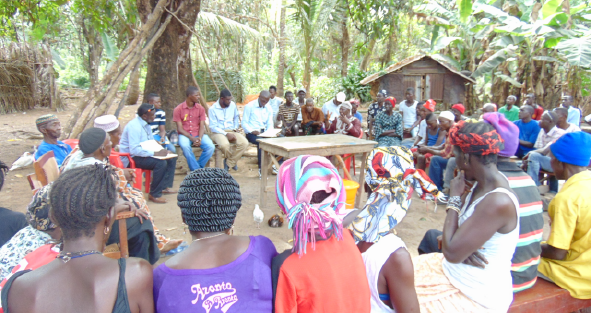
The Directorate of The DCCA protects and promotes the rights of communities, supports the successful implementation of local content in the minerals sector, facilitates information sharing among stakeholders, and raises public awareness and participation in the mines and minerals sector.
The Directorate has the following Units:
- The Community Affairs Unit: ensures that mineral right holders respect the rights, customs and traditions of local people; obtain free, prior and informed consent for land used for mining and exploration activities; provide adequate compensation for land use; and contribute to sustainable development in mining communities. The Unit also has systems in place to address grievances and conflicts between mineral right holders and local communities.
- The Local Content Monitoring Unit: supports the implementation of the Sierra Leone Local Content Agency Act 2016 in the minerals sector by, among other things, ensuring that mineral right holders give preference to Sierra Leoneans for employment and training. The Unit also ensures preference is given to goods produced and services provided by majority owned Sierra Leonean businesses based in the country.
- The Communication Unit: promotes public awareness and shares timely information with stakeholders on NMA’s Strategic Plan, strategies, interventions/activities and developments in the mines and minerals sector and facilitate active stakeholder participation.
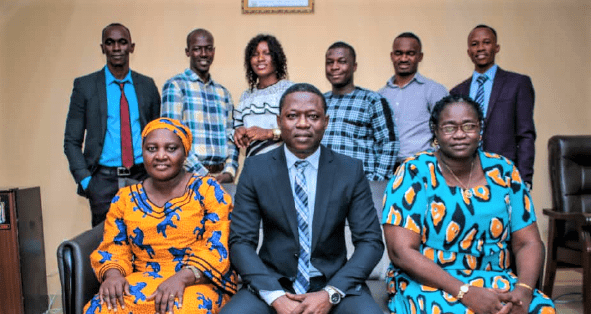
The Directorate of Technology and Information Management (DTIM) is responsible for the overall design, development and implementation of the Agency’s data, information, knowledge and ICT needs. It ensures that all authorized NMA entities as well as the mineral right holders, civil society organizations and all relevant stakeholders have timely access to mining cadastre, geo-scientific data and information, including data interpretations, articles, images, reports and maps.
The DTIM has the following Units:
- Information and Communications Technology Unit: administers the Agency’s network infrastructure and ensures its smooth running. The ICT Unit is responsible for setting up security policies for various users on the network; testing, evaluation and rolling out of new technologies; installation and configuration of hardware and software; maintenance and troubleshooting of hardware and software. The Unit ensures regular back up of relevant data, information and applications which could be recovered in case of any disasters.
- Library and Research Unit: provides routine library services such as archiving of information in line with the Agency’s mandate; supports the development of professional knowledge management system; and develops and maintains an effective record keeping and reference system for all materials across the Agency, both in hard copy and electronic format. The Unit provides assistance to staff, the public and other stakeholders for effective and efficient use of the library facilities.
- Data and Information Management Unit: manages the development, deployment, operations, maintenance and support of NMA data and information needs in line with the Agency’s Strategic Plans. The Unit provides support to other Directorates in the Agency to develop and maintain up-to-date and reliable data and information for both internal and external stakeholders.
If you like the information on this page, please feel free to share.
Share:
